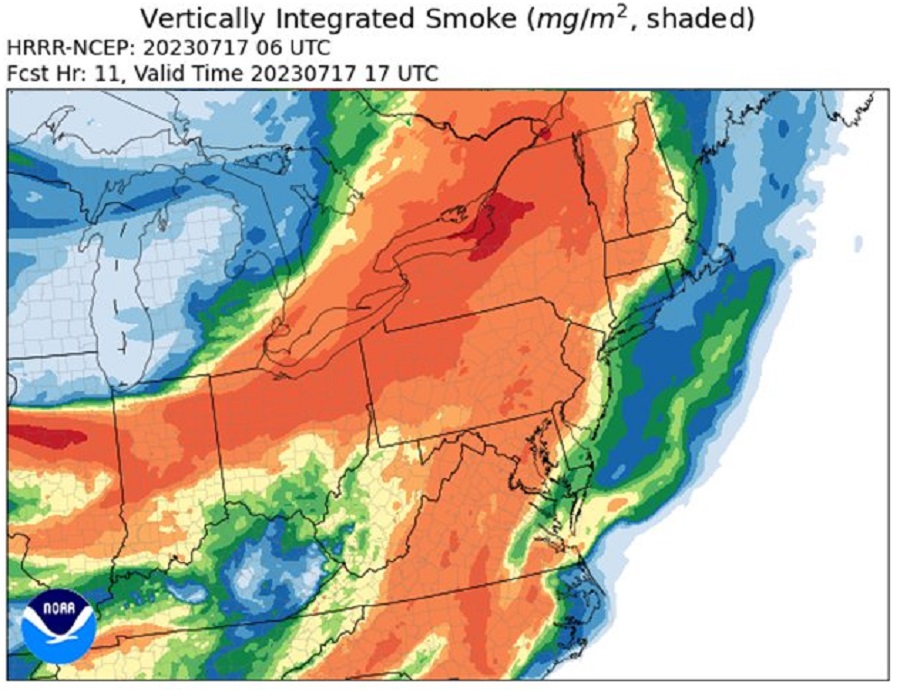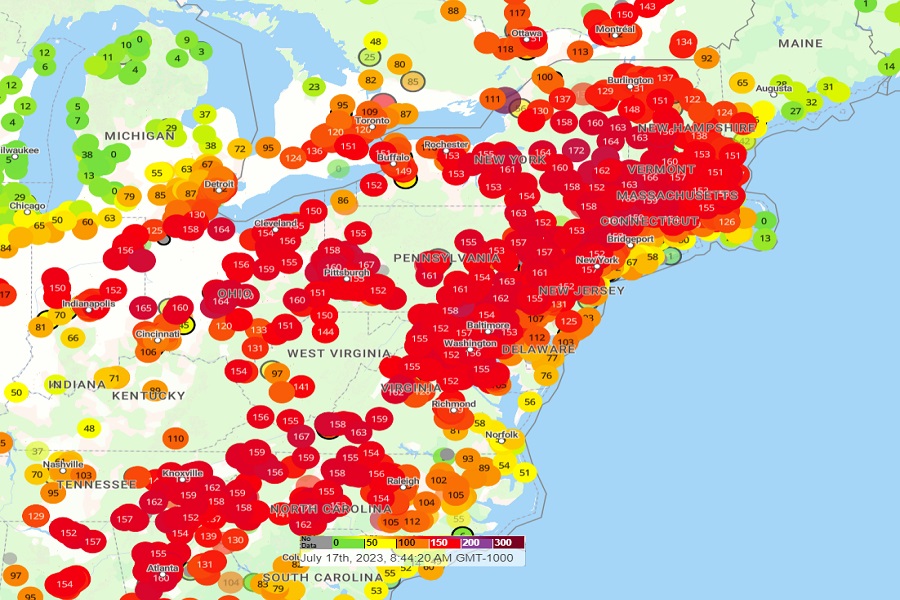
After a brief respite, thick smoke from wildfires burning in Canada will return to the eastern U.S. today, forcing many states to issue air quality alerts.
In places like New Jersey, an Air Quality Action Day has been declared, which means that air quality within the region may approach or exceed unhealthy standards for sensitive groups. Sensitive individuals, including those with heart or lung disease, the elderly, and the young should limit strenuous activities and the amount of time active outdoors. Other places like Pennsylvania a have issued Orange Alert highlighting the threat poor air quality has on people there.
Air quality levels in outdoor air are predicted to be greater than an air quality index value of 100 for Fine Particulates in large parts of the eastern U.S. today. The air quality index, or AQI, was created as an easy way to correlate levels of different pollutants to one scale. The higher the AQI value, the greater the health concern.

According to the Canadian Interagency Forest Fire Centre, there were more than 900 active wildfires this weekend, contributing to the atmospheric smoke that travels south into the United States. Fires are burning from coast to coast; to date, they’ve consumed about 25 million acres of land this year, roughly the size of the state of Indiana.
Of the 886 active fires today, 584 are considered out of control, 98 are being held, and 204 are considered to be under control.
Poor forest management, reduced firefighting budgets, and arson have been blamed for this year’s breakout of fires in Canada.
Air quality across the eastern United States is forecast to improve later in the week.